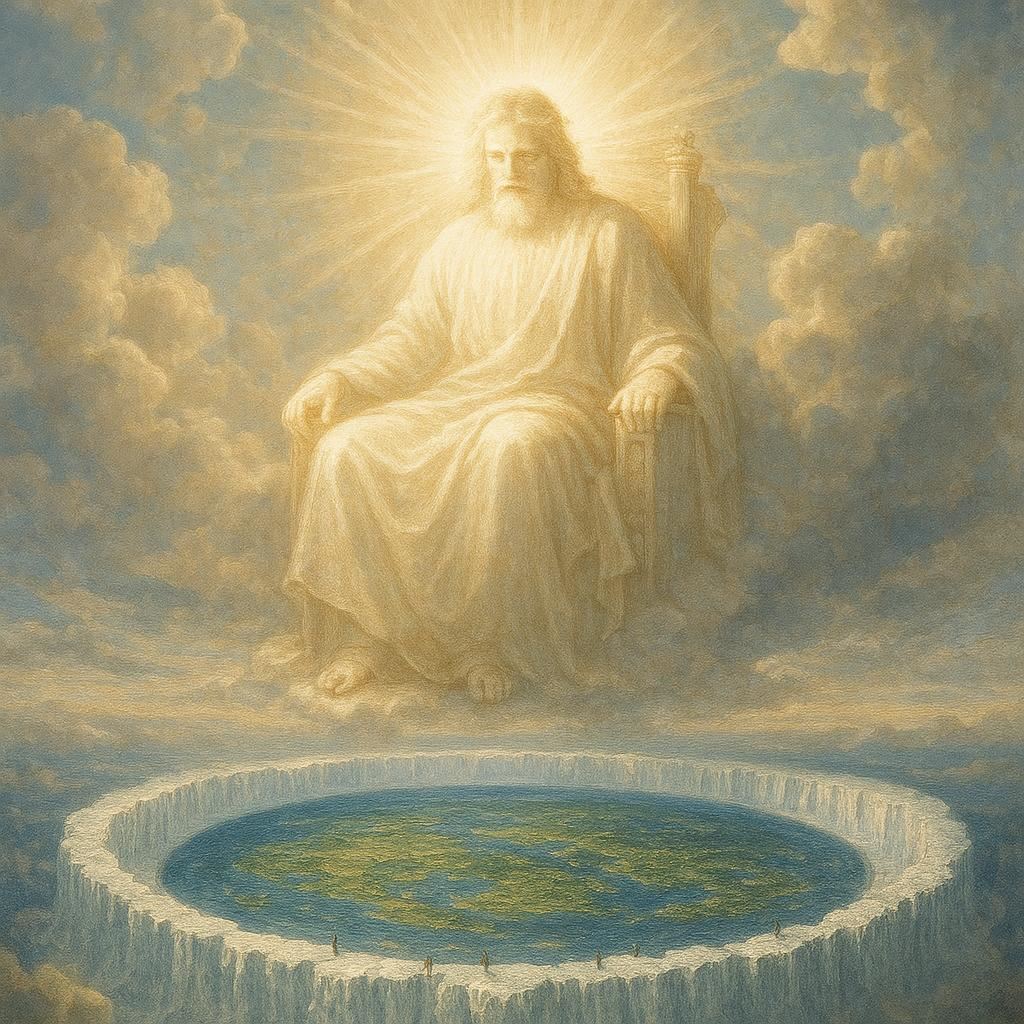Greetings, friends! “Hope is always open for business,” goes the saying for those who acknowledge and believe that a higher force from Heaven is at work in the hearts of those who are trying to grasp the mysteries of life existing. I hope this lesson may help!
The Holy Spirit: Heaven’s Gift to Humanity:
The Holy Spirit is a central figure in Christian theology, a divine presence deeply rooted in the Bible’s teachings. Understanding His origin, identity, and purpose allows us to grasp His role in creation, redemption, and our personal lives. This exploration will illuminate these aspects, drawing on Scripture to present a cohesive and accessible lesson.
The Origin of the Holy Spirit:
- ) The Holy Spirit is not a created being but rather the third Person of the Trinity, co-eternal and co-equal with God the Father and God the Son. The Bible’s opening verses introduce us to the Spirit’s active role in creation:
- ) “Now the earth was formless and empty, darkness was over the surface of the deep, and the Spirit of God was hovering over the waters” (Genesis 1:2).
- ) The Hebrew term for “Spirit” here is ruach, meaning “breath” or “wind,” conveying the life-giving and dynamic essence of God. From the beginning, the Spirit is revealed as the One who brings order, life, and purpose.
- ) The Spirit’s eternal nature is further emphasized by Jesus in (John 16:13), where He describes the Holy Spirit as “the Spirit of truth” who will guide us into all truth, reflecting His timeless and divine nature.
Who Is the Holy Spirit?
The Holy Spirit is a Person, not merely an abstract force or energy. He has intellect, emotion, and will, as evidenced by biblical texts:
- Intellect: The Spirit searches the depths of God (1 Corinthians 2:10-11).
- Emotion: He can be grieved (Ephesians 4:30).
- Will: He distributes spiritual gifts as He determines (1 Corinthians 12:11).
As God, the Holy Spirit shares divine attributes: omnipotence, omniscience, and omnipresence. For instance, Psalm 139:7-8 proclaims the Spirit’s omnipresence: “Where can I go from your Spirit? Where can I flee from your presence? If I go up to the heavens, you are there; if I make my bed in the depths, you are there.”
The Purpose of the Holy Spirit:
The Bible reveals the Holy Spirit’s purpose in four overarching roles / Creation, Revelation, Redemption, and Sanctification:
1. In Creation
The Spirit’s creative work is not confined to Genesis. He continues to sustain life:
“When you send your Spirit, they are created, and you renew the face of the ground” (Psalm 104:30).
Through the Spirit, God breathes life into humanity, enabling us to live in relationship with Him.
2. In Revelation
The Spirit reveals God’s truth to humanity. In the Old Testament, He inspired prophets to speak God’s Word (2 Peter 1:21). In the New Testament, the Spirit guided the apostles, ensuring that the message of salvation would be preserved and accurately communicated:
“But the Advocate, the Holy Spirit, whom the Father will send in my name, will teach you all things and will remind you of everything I have said to you” (John 14:26).
The Spirit illuminates Scripture for believers, helping us understand and apply God’s Word in our lives.
3. In Redemption
The Holy Spirit was active in the life and ministry of Jesus. At His baptism, the Spirit descended like a dove, anointing Him for His mission (Luke 3:21-22). The Spirit empowered Jesus to perform miracles, preach the gospel, and fulfill God’s redemptive plan.
For believers, the Spirit is instrumental in our salvation:
- Conviction of Sin: The Spirit exposes our need for a Savior (John 16:8).
- Regeneration: He brings new spiritual life, making us a new creation in Christ (Titus 3:5).
4. In Sanctification
The Holy Spirit is the agent of sanctification, transforming believers into the image of Christ. He indwells us, producing spiritual fruit:
“But the fruit of the Spirit is love, joy, peace, forbearance, kindness, goodness, faithfulness, gentleness, and self-control” (Galatians 5:22-23).
Through His presence, we are empowered to resist sin, grow in holiness, and live out our faith.
The Holy Spirit’s Presence in Our Lives:
The Holy Spirit is not reserved for a select few; He is available to all who believe in Christ. On the day of Pentecost, Peter declared: “Repent and be baptized, every one of you, in the name of Jesus Christ for the forgiveness of your sins. And you will receive the gift of the Holy Spirit” (Acts 2:38).
1. The Indwelling of the Spirit
Every believer receives the Holy Spirit as a guarantee of their salvation (Ephesians 1:13-14). This indwelling empowers us to live victoriously:
“You, however, are not in the realm of the flesh but are in the realm of the Spirit, if indeed the Spirit of God lives in you” (Romans 8:9).
2. The Spirit as Our Guide
The Holy Spirit leads and guides us in our daily lives. This guidance may come through Scripture, prayer, or an inner conviction. Proverbs 3:5-6 encourages us to trust in the Lord’s direction, which the Spirit facilitates.
3. The Spirit’s Gifts
The Holy Spirit equips believers with spiritual gifts for the building up of the Church (1 Corinthians 12:7-11). These gifts, ranging from wisdom to healing, demonstrate His power and purpose.
Examples of the Holy Spirit’s Work in Scripture:
- The Day of Pentecost (Acts 2): The Spirit’s descent marked the birth of the Church, empowering the apostles to boldly proclaim the gospel.
- Philip and the Ethiopian Eunuch (Acts 8:26-40): The Spirit guided Philip to share the gospel with the eunuch, illustrating the Spirit’s role in evangelism.
- Paul’s Missionary Journeys (Acts 16:6-10): The Spirit directed Paul’s steps, closing doors in some regions and opening them in others, demonstrating divine guidance.
The Holy Spirit in Eternity:
The Holy Spirit’s work will culminate in eternity. Revelation speaks of the Spirit’s role in the Church’s final triumph and God’s eternal kingdom; “The Spirit and the bride say, ‘Come!’ And let the one who hears say, ‘Come!’ Let the one who is thirsty come; and let the one who wishes take the free gift of the water of life” (Revelation 22:17). This verse highlights the Spirit’s invitation to eternal life, offered freely to all who believe.
How to Cultivate a Relationship with the Holy Spirit:
- Prayer: Ask the Spirit to fill you, guide you, and empower you (Luke 11:13).
- Scripture: Allow the Spirit to illuminate God’s Word, making it alive and personal (Psalm 119:18).
- Obedience: Walk in step with the Spirit, yielding to His guidance (Galatians 5:25).
- Fellowship: Engage with other believers, as the Spirit works powerfully in community (Ephesians 4:3).
Author’s Note:
‘Friends, The Holy Spirit is a gift from heaven, sent to dwell within us and empower us to live for God. He convicts, regenerates, sanctifies, and equips us, enabling us to fulfill God’s purposes. By understanding His identity and purpose, we can experience the fullness of life in Christ. Be all you can be in the fight for right, in the Grace of Jesus Christ in your life. “Experience the possible Today.”
*God Bless All*
Servant; Norman G. Roy III
The Holy Spirit Loves These WORDS; But Few Christians Say Them:
7 AMAZING THINGS THAT HAPPEN WHEN THE HOLY SPIRIT ENTERS A BELIEVER:
THE TRUTH About Monitoring Spirits And How They Monitor You!


